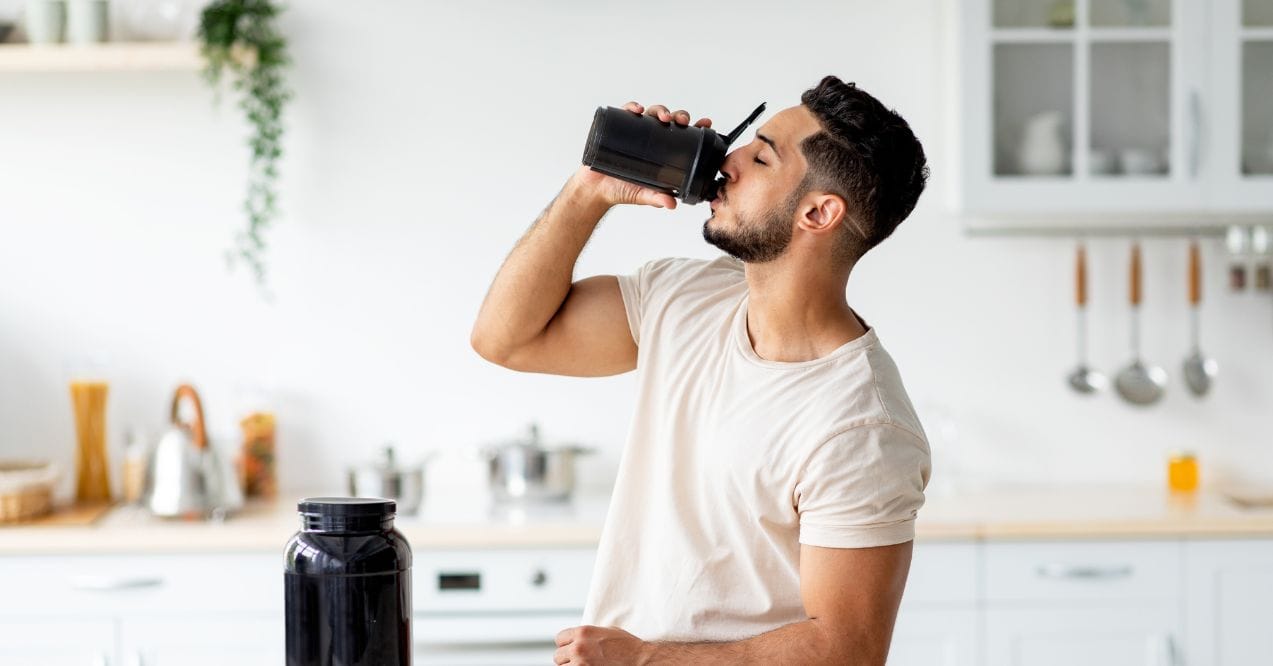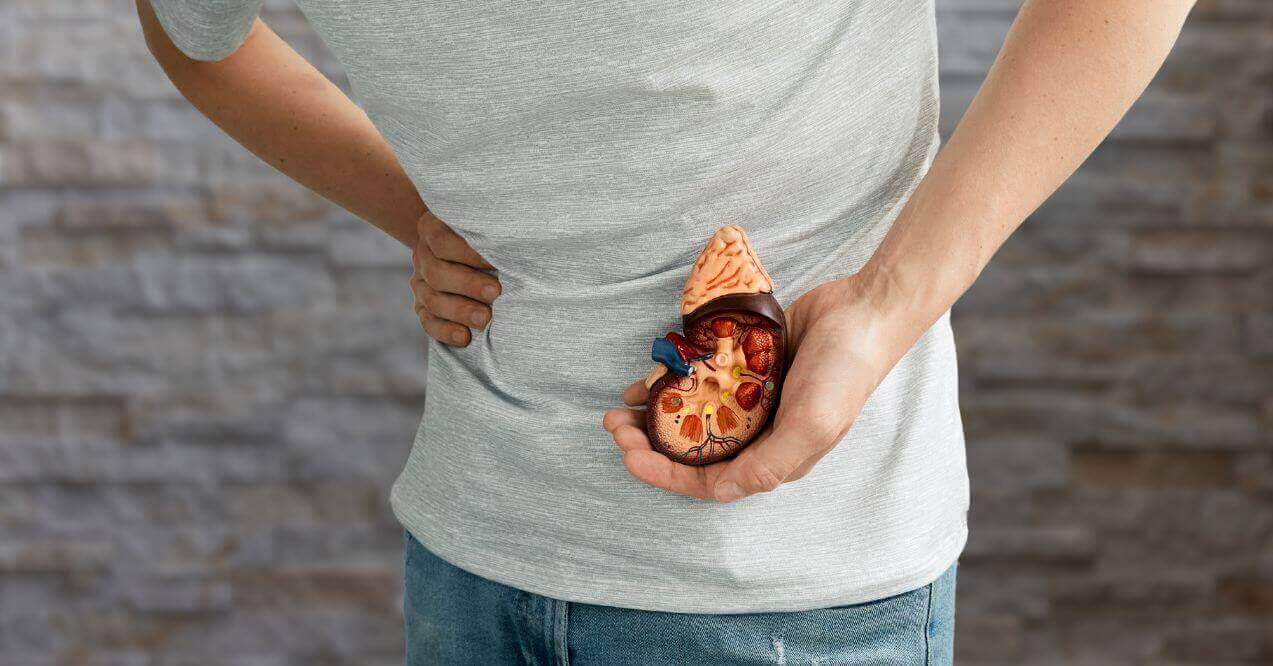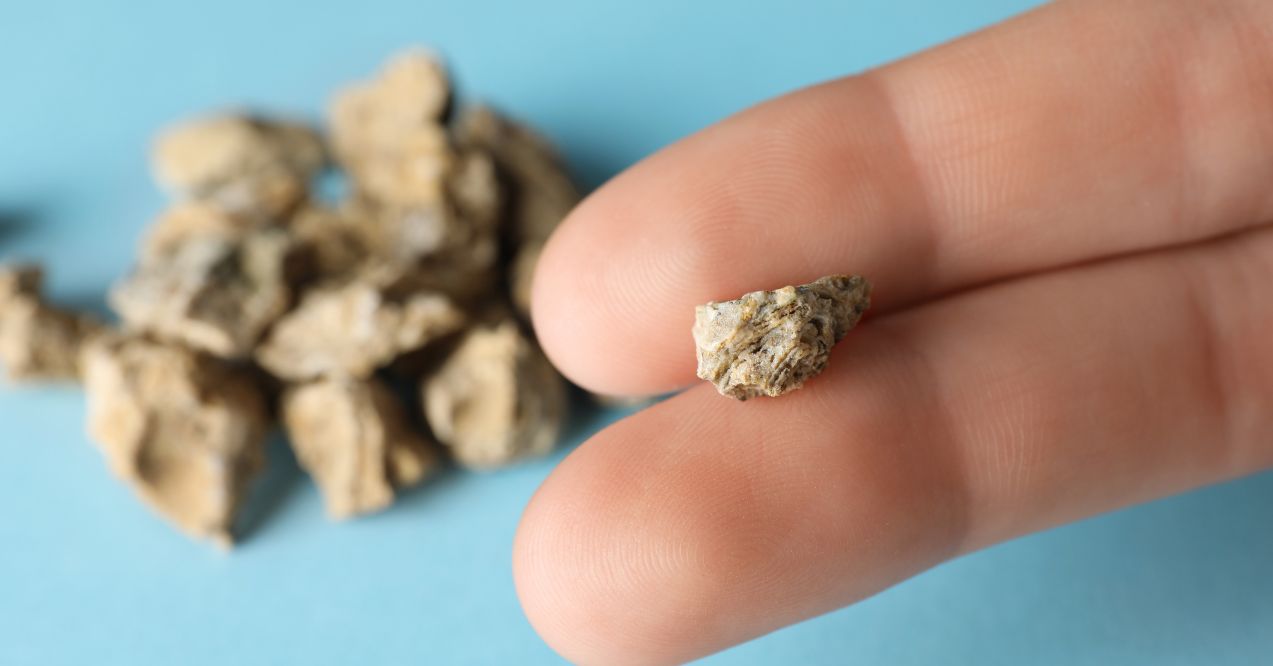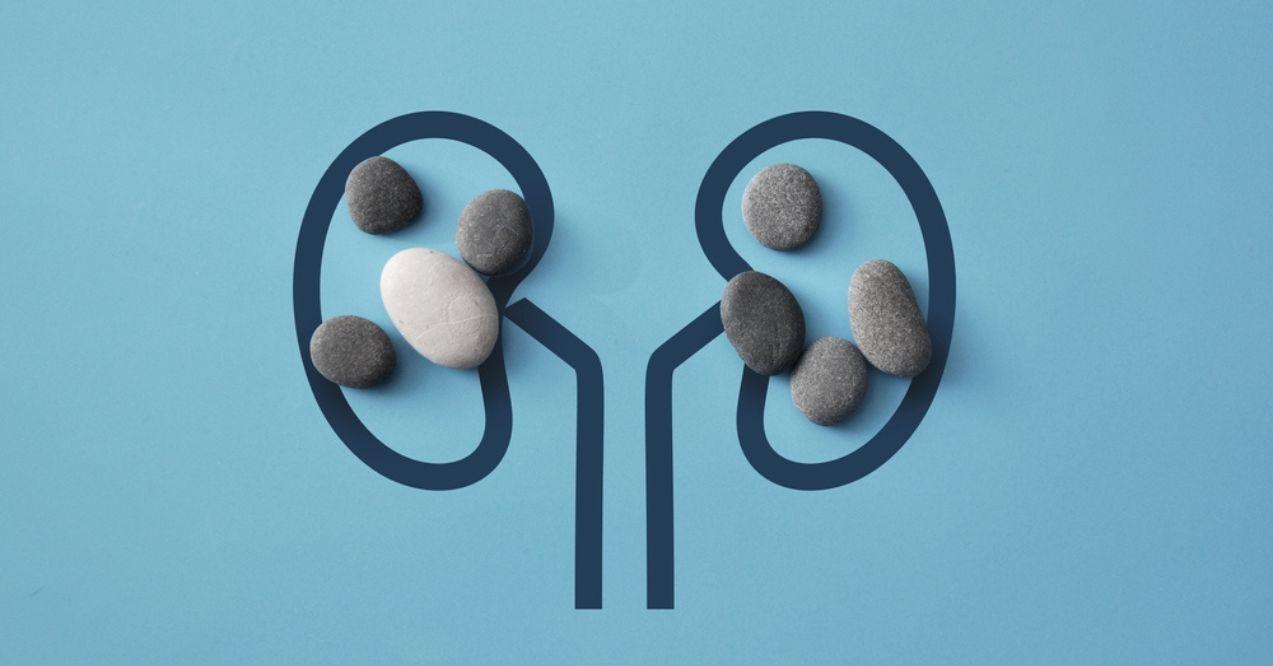Can Kidney Stones Cause Diarrhea?
Could your digestive upset be linked to kidney stones? Discover the hidden impact of this painful condition.
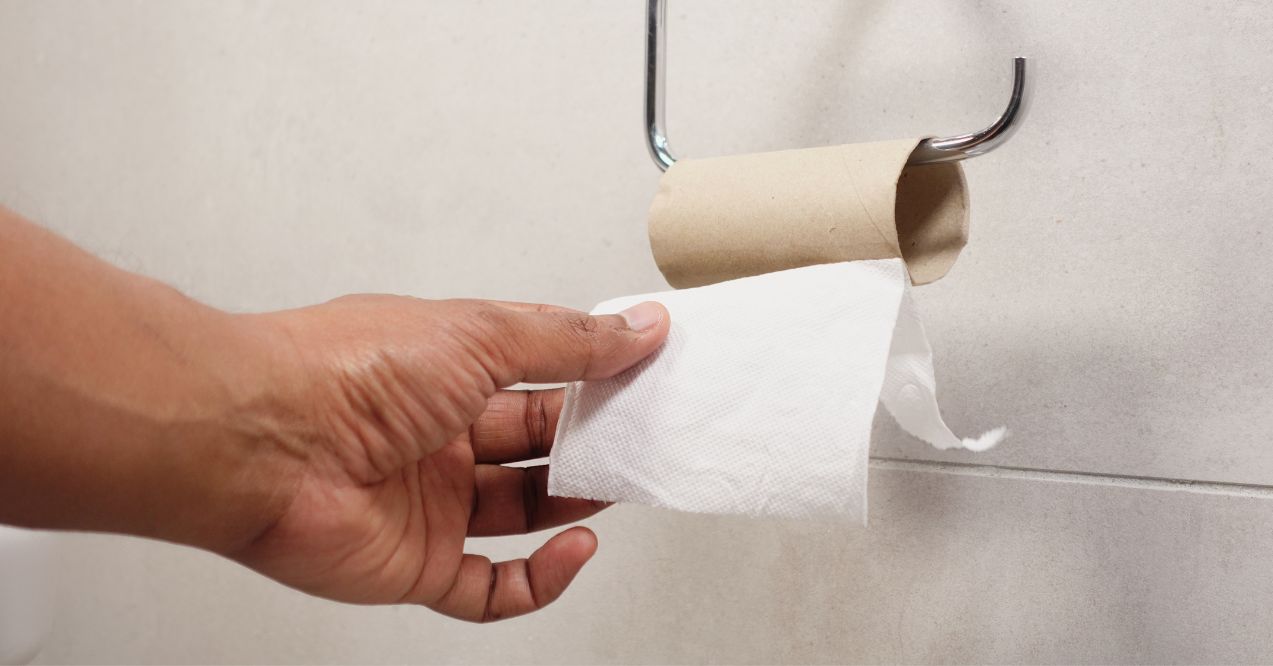

Are you experiencing both kidney stones and diarrhea and wondering if there’s a link? While kidney stones typically impact urinary health, their presence can sometimes affect your digestive system as well. So, can kidney stones cause diarrhea?
Hard mineral deposits form inside the kidneys and can cause significant discomfort as they pass through the urinary tract. However, their presence and the body’s response to them can sometimes have an impact on other systems, including the digestive system.
So today we will explore and find out if there is a potential connection between kidney stones and changes in bowel movements.
How Do Kidney Stones Form?
Kidney stones are hard, pebble-like deposits that form inside your kidneys. They are made up of minerals and salts that crystallize in the kidneys, often consisting of calcium, uric acid, or struvite. Kidney stones form in a few steps gradually:
- Supersaturation of Minerals – When your urine contains high levels of certain minerals or salts, and not enough fluid to dilute them, these substances can crystallize, forming the initial tiny seeds of stones.
- Stone Growth – Once these seeds form, additional minerals can attach to them during their journey through the urinary tract, causing the stones to grow.
Certain lifestyle choices, like diet and fluid intake, play a crucial role in stone formation. For instance, consuming high amounts of oxalate-rich foods or not drinking enough water can increase the risk of stone formation.
If you ever wondered, do energy drinks cause kidney stones? There might be a definitive answer. Energy drinks typically contain high levels of caffeine and sugar, which can contribute to dehydration. Additionally, the acidity and certain chemical contents in these drinks might lead to an increase in kidney stone risk for frequent consumers.
Are There Different Kinds of Kidney Stones?
There are several different kinds of kidney stones, each with unique causes and effects on the body, including potential impacts on kidney stones and bowel movements or kidney stones and gas:
- Calcium Stones – These are the most common type and are usually formed from calcium oxalate. Factors like high oxalate intake from certain fruits and vegetables, as well as nuts and chocolate, can contribute to their formation.
- Uric Acid Stones – These stones develop when urine is too acidic, a condition that can be influenced by consuming a diet high in purines—substances found in animal proteins such as fish, meats, and shellfish.
- Struvite Stones – These typically form in response to an infection in the urinary system. They can grow quickly and become quite large, sometimes with few symptoms.
- Cystine Stones – These are less common and form in people with a hereditary disorder that causes the kidneys to excrete too much of certain amino acids (cystinuria).
Can Kidney Stones Cause Diarrhea?
The connection isn’t direct, but there are ways in which kidney stones might lead to increased bowel movement:
- Primarily, the intense pain caused by passing a kidney stone can trigger a stress response in the body, which may accelerate bowel movements. This pain-related stress response stimulates the digestive tract in a way that can disrupt normal bowel function.
- Additionally, the medications prescribed to manage the pain and discomfort associated with kidney stones can have side effects that include changes in bowel habits.
For example, certain pain relievers and antibiotics used in the treatment of kidney stones and related infections might upset the gastrointestinal system, leading to diarrhea. While kidney stones themselves do not directly cause diarrhea, many people still ask, can kidney stones cause diarrhea? In most cases, it’s the body’s response to pain or medication that plays a role in digestive discomfort.
Therefore, if you’re experiencing both, it’s important to consider how your body might be reacting to the pain or the medications rather than the stones directly affecting your bowel movements.
How Can You Prevent Kidney Stones?
Preventing kidney stones is largely about adopting a healthy lifestyle and managing dietary choices effectively. Here are some traditional methods to help prevent the formation of kidney stones:
- Stay Hydrated – Drink plenty of fluids, especially water. Aim for at least 8-10 glasses a day to keep urine diluted and prevent the minerals from crystallizing.
- Limit Oxalate-Rich Foods – Foods high in oxalates, such as raw spinach, rhubarb, and almonds, should be consumed in moderation to avoid contributing to calcium oxalate stone formation.
- Reduce Sodium Intake – High sodium levels in the diet can increase calcium buildup in urine, which can lead to stone formation. Aim to limit salt intake below 2,300 milligrams per day. You can support healthy salt levels by adding potassium-rich foods.
- Moderate Animal Protein – Eating too much animal protein, such as red meat, poultry, eggs, and seafood, can boost the uric acid and reduce the levels of citrate, a chemical in urine that helps prevent stone formation.
- Balance Calcium Intake – While it might seem counterintuitive, a moderate amount of calcium in your diet or complementing calcium-rich foods with oxalate foods can actually help prevent stones, as the calcium binds with oxalates in the gut, reducing stone formation.
Besides these traditional methods, supplements for kidney health can also play a supportive role in kidney stone prevention. Products like the Kidney Health Formula by PureHealth Research can complement your dietary and hydration efforts. Endorsed by Dr. Holly Lucille, ND, these supplements provide additional support for maintaining a healthy mineral balance, reducing stone formation, and optimizing kidneys function.
How Are Kidney Stones Diagnosed?
Kidney stones are typically diagnosed through a combination of clinical evaluation and diagnostic tests. Here’s an overview of the primary methods used to confirm the presence of kidney stones:
- Medical History and Physical Exam – Initially, a doctor will ask about symptoms and previous health issues. A physical examination can help identify the pain associated with kidney stones.
- Urine Tests – A 24-hour urine collection test may be conducted to check for minerals that can form kidney stones. This test also checks the urine for signs of stone-forming minerals.
- Ultrasound – A non-invasive test that uses sound waves to create images of the kidneys, allowing visualization of stones.
- X-rays – Often used to locate kidney stones visible on the radiograph.
- CT Scan – Provides detailed cross-sectional images of the body and is highly effective at identifying kidney stones, even small ones.
If you suspect you have kidney stones, self-treatment is not recommended. It’s important to consult a doctor who can provide an accurate diagnosis using these methods. This ensures that you receive the appropriate care and advice specific to your situation.
Conclusion
Kidney stones and diarrhea, while not directly linked, can sometimes be connected through the body’s stress response to pain or medication side effects. If you’re still wondering, can kidney stones cause diarrhea, factors like hydration levels and dietary choices may play a role. Understanding this connection and taking preventive measures can help reduce discomfort, but consulting a doctor is essential for proper diagnosis and treatment.
You might know a kidney stone is close to passing if you experience sudden, severe pain in the lower back or side, frequent and painful urination, and sometimes nausea or vomiting. These symptoms indicate the stone is moving through the urinary tract towards the bladder.
Yes, kidney stones and gas may be related. The discomfort and pain caused by kidney stones may disrupt normal digestion and lead to increased gas, as your body reacts to the stress and potential changes in diet or medication associated with managing the stones.
When you have kidney stones, your stomach may feel upset due to the intense pain. This discomfort may influence kidney stones and bowel movements, leading to potential symptoms like nausea, cramping, and irregular bowel activity, which add to the general abdominal distress.
Sign up for our Healthy Living newsletter!
Advertisement. This site offers health, wellness, fitness and nutritional information and is designed for educational purposes only. You should not rely on this information as a substitute for, nor does it replace, professional medical advice, diagnosis, or treatment. If you have any concerns or questions about your health, you should always consult with a physician or other health-care professional. Do not disregard, avoid or delay obtaining medical or health related advice from your health-care professional because of something you may have read on this site. The use of any information provided on this site is solely at your own risk.



